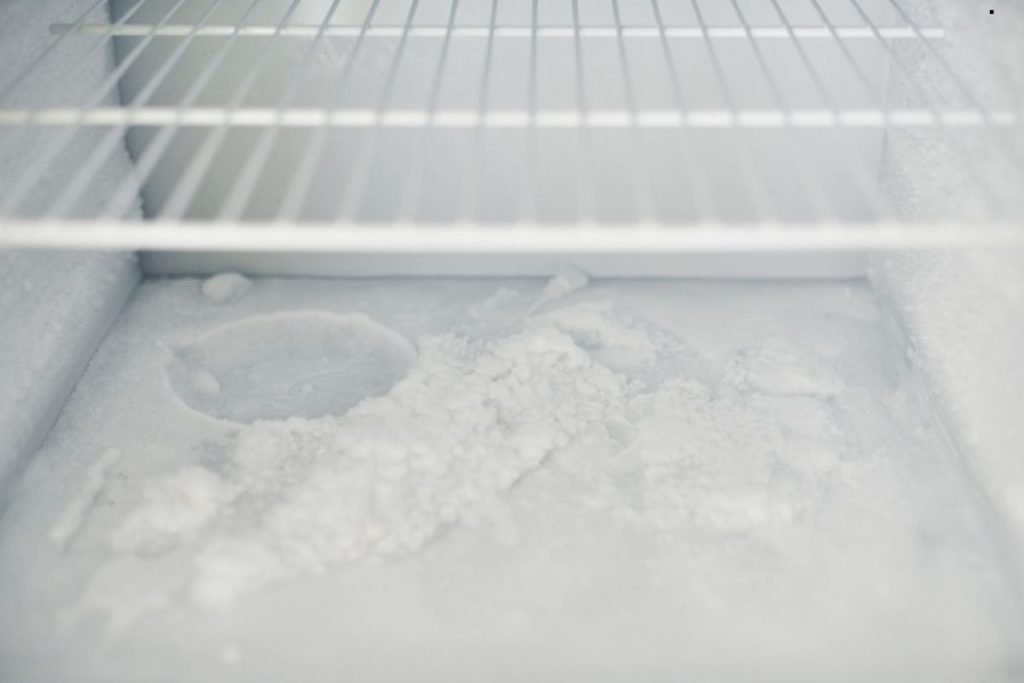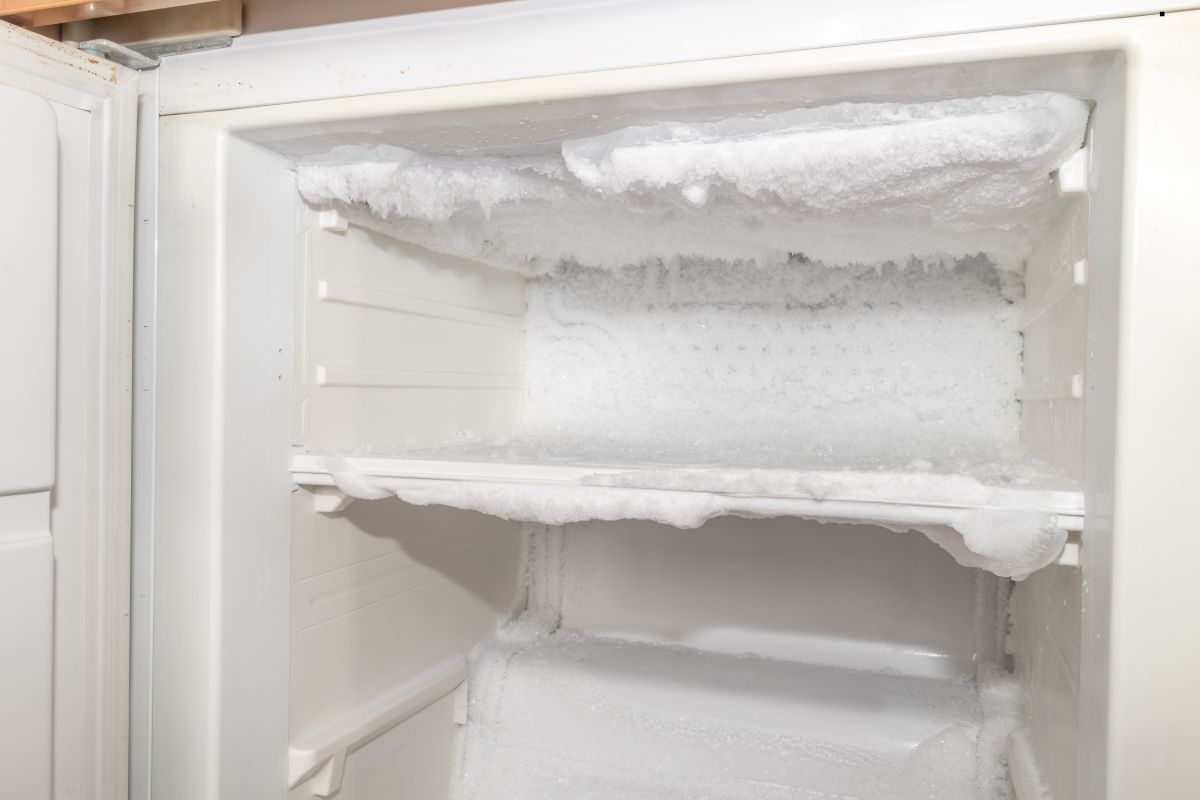
Ever opened your freezer, grabbed some ice for your drink, and noticed it smells… off? It’s a real mood killer, especially when you’re just trying to enjoy a cold beverage. If you’re dealing with bad-smelling ice from your Samsung refrigerator, you’re not alone. This is a common issue, but the good news? It’s usually fixable. Let’s break down why this happens and how you can get your ice smelling fresh again.
Key Takeaways
- Improper cleaning of the ice maker can lead to bad smells.
- Stale or unfiltered water often causes unpleasant odors in ice.
- Food odors from the fridge can transfer to the ice.
- Dirty air filters and water lines impact ice quality.
- Regular maintenance and proper food storage prevent odor issues.
Common Causes of Bad-Smelling Ice in Samsung Refrigerators
Improper Cleaning of Ice Maker Components
One of the simplest yet most overlooked reasons for bad-smelling ice is neglecting to clean the ice maker’s components. Over time, residue from water, mold, or even tiny food particles can build up in the ice tray and dispenser. This buildup can lead to unpleasant odors that transfer directly to your ice. Make it a habit to give these parts a thorough scrub every few months.
Stale Water in the Ice Maker Reservoir
If the water in your ice maker reservoir sits for too long, it can go stale. Stagnant water often develops a musty smell, and when this water freezes, the odor gets trapped in the ice cubes. Regularly using the ice maker or flushing out old water can help avoid this issue.
Food Odors Transferring to Ice
Believe it or not, the food in your refrigerator can be a major culprit. Strong-smelling items like onions, garlic, or even leftovers can release odors that seep into the ice. This happens because the refrigerator’s air circulates throughout, including the ice maker compartment. To minimize this, store pungent foods in airtight containers and consider using an odor absorber in your fridge.
Explore our wide range of expert repair solutions on our Services Page. We specialize in Commercial Appliances Repair, Refrigerator Repair, and more to keep your home and business running smoothly. Whether you need routine maintenance or urgent repairs, our skilled technicians provide reliable, efficient service tailored to your needs.
Bad-smelling ice isn’t just an inconvenience—it can completely ruin your drink. Luckily, most of these causes are easy to fix with a bit of regular maintenance.
For more tips on improving ice quality, check out filtered, clean water to ensure your ice tastes fresh every time.
How Water Quality Affects Ice Odor

High Mineral Content in Tap Water
If your tap water has a lot of minerals, like calcium or magnesium, it can mess with how your ice smells and tastes. These minerals tend to stick around even after freezing, giving your ice a metallic or chalky vibe. Using filtered water can cut down on these impurities and help your ice smell and taste fresher.
Chlorine and Chemical Residues
Chlorine is often added to tap water to keep it safe, but it can leave a lingering smell or flavor in your ice. If you’ve ever noticed a faint chemical scent when grabbing an ice cube, this might be why. A good water filter can usually take care of this issue, leaving your ice odor-free.
Using Unfiltered Water in the Ice Maker
Sometimes, the simplest explanation is the right one. If you’re using unfiltered water in your Samsung refrigerator’s ice maker, you’re inviting all kinds of smells and tastes into your ice. Unfiltered water can carry everything from sediment to odd odors, which can easily transfer to your ice cubes. Consider upgrading to a high-quality filter to avoid this problem.
Concerned about how water quality affects ice odor? Call us for expert advice on filtration and maintenance solutions!
The Role of Refrigerator Maintenance in Ice Quality
Dirty Refrigerator Air Filters
Your refrigerator’s air filter is like the lungs of the fridge—it keeps the air inside clean and fresh. Over time, this filter can get clogged with debris, dust, or even tiny food particles. When that happens, odors from spoiled or strong-smelling foods can circulate and seep into your ice. Replacing the air filter regularly is a simple but effective way to prevent this. Most manufacturers recommend doing this every six months, but check your fridge’s manual to be sure.
Clogged or Contaminated Water Lines
If the water line feeding your ice maker is clogged or dirty, it’s a recipe for bad-smelling ice. Mineral buildup, mold, or bacteria can accumulate in the line, especially if your water supply isn’t filtered. Here’s how to tackle this issue:
- Turn off the water supply to your refrigerator.
- Disconnect the water line and inspect it for any visible buildup or discoloration.
- Flush the line with a mixture of water and vinegar to clear out impurities.
If the line is beyond cleaning, it’s better to replace it entirely. Using a high-quality water filter can also help keep your water lines clean over time.
Neglecting Regular Ice Maker Cleaning
Let’s face it—most people don’t think about cleaning their ice maker until there’s a problem. But neglecting this step can lead to a buildup of grime, mold, or bacteria in the tray and other components. To maintain fresh-tasting ice, follow these steps:
- Empty the ice bin and discard any old ice.
- Wipe down the ice tray and bin with warm, soapy water.
- Use a toothbrush or small brush to scrub hard-to-reach areas.
- Rinse thoroughly and let everything dry before reassembling.
A little maintenance goes a long way. Keeping your refrigerator in good shape not only improves ice quality but also extends the life of your appliance.
If you’re dealing with persistent issues, check out essential maintenance tips and troubleshooting techniques to keep your refrigerator’s water and ice dispensers working like new.
Impact of Food Storage on Ice Smell

Unsealed Food Containers in the Fridge
You might not think about it, but improperly stored food can wreak havoc on your ice. When food is left in unsealed containers, its odors can spread throughout the refrigerator. These smells easily find their way into your ice cubes, leaving them with a strange or unpleasant taste. For example, leftover curries or cut onions stored without lids are common culprits. To avoid this, always use airtight containers for storing food. Improper food storage can make a big difference in keeping your ice fresh.
Strong-Smelling Foods Stored Nearby
Certain foods, like garlic, fish, or even ripe fruits, have strong odors that can transfer to your ice. This happens because refrigerators circulate air to maintain a consistent temperature, spreading those smells around. If you notice your ice tasting like last night’s dinner, try separating pungent foods from the ice maker or freezer section. Wrapping these items tightly in plastic wrap or foil can also help.
Cross-Contamination Between Compartments
Believe it or not, odors can travel between the fridge and freezer compartments. If your fridge is packed or poorly organized, it’s easier for smells to move around. This is especially true if the door seals are worn out or not closing tightly. To prevent cross-contamination, keep your refrigerator organized and avoid overloading shelves. Regularly checking and replacing worn gaskets can also help maintain a proper seal.
A little effort in organizing your fridge can go a long way in keeping your ice tasting clean and fresh.
How to Eliminate Bad Odors from Your Ice Maker
Deep Cleaning the Ice Maker and Tray
Over time, your ice maker can collect grime, mold, or even bits of food debris, all of which contribute to unpleasant smells. To tackle this, remove the ice tray and wash it thoroughly with warm, soapy water. Use a soft brush or sponge to scrub away any buildup. For the ice maker itself, wipe down all accessible surfaces with a solution of one part vinegar to two parts water. Make sure to dry everything completely before reassembling to avoid moisture-related issues.
Replacing the Water Filter Regularly
A worn-out water filter can be a sneaky culprit behind smelly ice. Filters are designed to remove impurities, but when they’re overdue for replacement, they stop doing their job effectively. It’s a good idea to swap out the filter every six months or sooner if you notice a drop in water quality. If you’re unsure how to proceed, start by turning off the water supply to the refrigerator. Follow the manufacturer’s instructions to replace the filter. This simple step can make a world of difference. For more details, replace the water filter to keep your ice tasting fresh.
Using Odor Absorbers in the Refrigerator
Sometimes, the smell isn’t just in the ice maker but in the fridge as a whole. Placing odor absorbers like baking soda or activated charcoal in the refrigerator can help neutralize smells. These items work by soaking up foul odors, leaving the air inside fresher. Replace them every month or so for the best results. You can even double up by using one absorber near the ice maker and another in the main fridge compartment.
A clean and odor-free ice maker isn’t just about taste—it’s about peace of mind. Knowing your ice is fresh and safe to use makes every drink more enjoyable.
Preventative Measures for Fresh-Smelling Ice
Storing Food Properly to Avoid Odor Transfer
If you’re not sealing your food correctly, you’re inviting trouble. Unsealed containers or loosely wrapped leftovers can release odors that sneak into your ice. Use airtight containers or heavy-duty wraps to lock in smells. Keeping your fridge organized can also help reduce odor transfer, as it limits the exposure of open food to circulating air.
Scheduling Routine Refrigerator Maintenance
A little upkeep goes a long way. Make it a habit to inspect your refrigerator monthly. Check for spills, clean the shelves, and ensure the door seals are tight. If you notice any strange smells, don’t ignore them—track them down and clean the source. Routine maintenance also includes swapping out old water filters. Replacing the water filter regularly keeps both your water and ice tasting fresh.
Using High-Quality Water Filters
Not all filters are created equal. Invest in a high-quality water filter designed for your Samsung refrigerator. A good filter removes impurities like chlorine and minerals, which can mess with the taste and smell of your ice. Plus, it’s a simple way to ensure you’re drinking cleaner, better-tasting water every day.
Fresh-smelling ice starts with small, consistent efforts. By storing food properly, maintaining your fridge, and using the right water filter, you’ll keep those funky odors at bay for good.Ensure clean, fresh ice by using high-quality water filters. Call us today for expert recommendations and installation services!
Wrapping It Up
So, there you have it—six reasons why your Samsung fridge ice might smell funky and what you can do about it. It’s not the end of the world, and most of these fixes are pretty straightforward. Whether it’s cleaning out the ice maker, swapping out the water filter, or just keeping your fridge smelling fresh, a little effort goes a long way. Nobody wants stinky ice ruining their drink, right? Hopefully, these tips help you get back to enjoying fresh, clean ice cubes. If all else fails, don’t hesitate to call in a pro. Sometimes, it’s just easier to let someone else handle the headache.
Frequently Asked Questions
Why does the ice from my Samsung refrigerator smell bad?
The smell could be due to dirty ice maker parts, stale water, or food odors from the fridge transferring to the ice.
Can unfiltered water make my ice smell weird?
Yes, unfiltered water can contain minerals, chlorine, or other chemicals that might give your ice an unpleasant smell.
How often should I clean my Samsung refrigerator’s ice maker?
It’s a good idea to clean the ice maker every few months to keep it fresh and working properly.
What can I do to stop food smells from affecting my ice?
Make sure food is sealed tightly, store strong-smelling items away from the ice maker, and use odor-absorbing products in the fridge.
How often should I replace the water filter in my refrigerator?
You should replace the water filter about every 6 months, or sooner if you notice any changes in the ice’s taste or smell.
Are there any tricks to keep my ice smelling fresh?
Yes, you can use high-quality water filters, clean the ice maker regularly, and schedule routine maintenance for your refrigerator.
Need help fixing bad-smelling ice in your Samsung refrigerator? Contact us today for expert advice and reliable appliance repair solutions!
